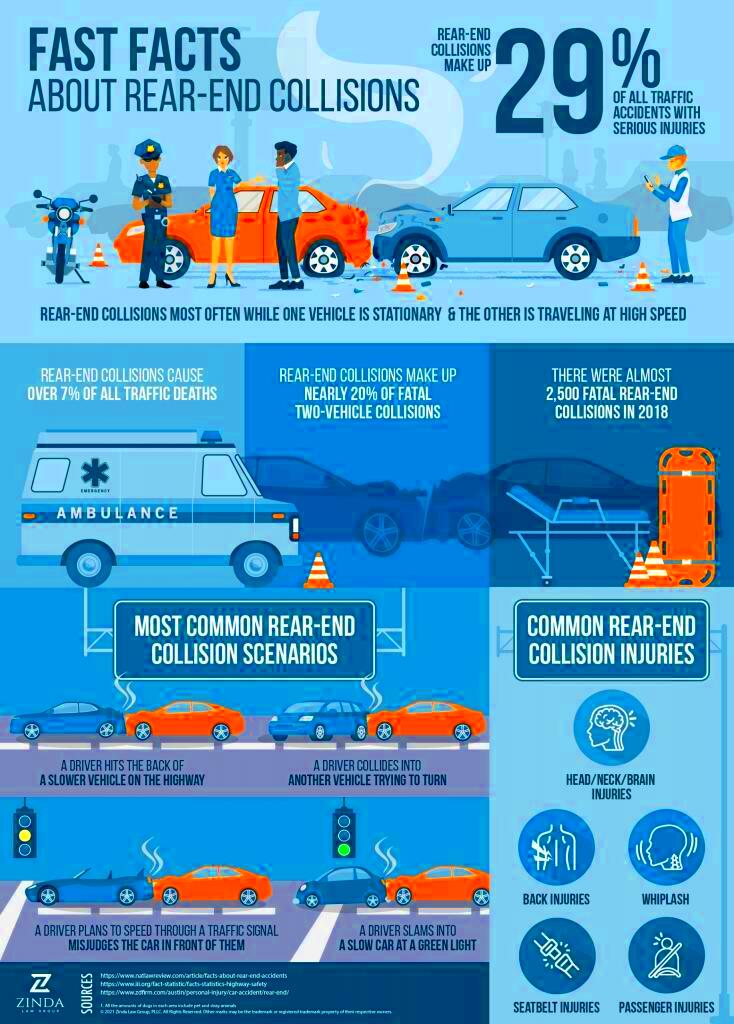Tennessee Rear-End Collision Laws and Legal Remedies
Rear-end collisions are one of the most common types of car accidents in Tennessee. They typically happen when one vehicle hits the back of another. These accidents can occur in various situations, such as stop-and-go traffic or at red lights. The severity of these collisions can vary, from minor fender benders to serious accidents causing significant injuries. It’s essential to understand the legal implications and potential remedies available if you find yourself involved in a rear-end collision.
Legal Definition of Rear-End Collisions

In legal terms, a rear-end collision occurs when one vehicle strikes the rear of another vehicle. This type of accident falls under personal injury law and traffic regulations in Tennessee. Here are some key points to consider:
- Negligence: Most rear-end collisions are attributed to driver negligence, such as distracted driving or speeding.
- Liability: The driver who rear-ends another vehicle is often presumed to be at fault unless they can prove otherwise.
- Traffic Laws: Tennessee has specific traffic laws governing safe driving practices, which can affect liability in these accidents.
Understanding these definitions is crucial for anyone involved in a rear-end collision. Knowing who is at fault can help victims seek legal remedies and compensation for their injuries and damages.
Common Causes of Rear-End Collisions

Rear-end collisions can happen for various reasons. Here are some of the most common causes:
- Distracted Driving: Using mobile phones, adjusting the radio, or eating can divert a driver’s attention.
- Speeding: Driving too fast reduces the time a driver has to react to sudden stops.
- Tailgating: Following too closely increases the likelihood of a collision if the lead vehicle stops unexpectedly.
- Weather Conditions: Rain, snow, or fog can affect visibility and road traction, leading to accidents.
- Fatigue: Tired drivers may have slower reaction times, making them more prone to accidents.
Understanding these causes can help drivers recognize dangerous behaviors and take steps to prevent accidents. It’s vital to remain vigilant and practice safe driving to reduce the risk of rear-end collisions.
Proving Fault in Rear-End Collision Cases

Determining fault in a rear-end collision can be a complex process, but it’s essential for victims seeking compensation. In most cases, the driver who rear-ends another vehicle is presumed to be at fault. However, there are situations where the fault may be shared or shifted. Here are some key elements to consider when proving fault:
- Traffic Laws: If a driver violated a traffic law, such as speeding or running a red light, this can support your case.
- Evidence Collection: Gathering evidence is crucial. This includes photographs of the accident scene, vehicle damage, and any visible injuries.
- Witness Statements: Eyewitness accounts can help establish the sequence of events and clarify who was at fault.
- Police Reports: A police report can provide an official account of the accident and may include an officer’s opinion on fault.
- Expert Testimony: In some cases, accident reconstruction experts can analyze the situation to determine how the collision occurred.
Overall, gathering as much information as possible is key to building a strong case for proving fault in a rear-end collision.
Legal Remedies Available for Victims
Victims of rear-end collisions in Tennessee have several legal remedies available to seek compensation for their losses. Understanding these options can empower victims to take action. Here are the main remedies:
- Compensatory Damages: Victims can seek compensation for medical expenses, lost wages, and property damage.
- Pain and Suffering: Victims may also claim damages for physical pain and emotional suffering resulting from the accident.
- Punitive Damages: In cases of extreme negligence, such as DUI, courts may award punitive damages to deter future reckless behavior.
To pursue these remedies, victims typically need to file a personal injury claim against the at-fault driver or their insurance company. Working with a qualified attorney can help navigate the legal process effectively.
Insurance Claims Process for Rear-End Collisions
Filing an insurance claim after a rear-end collision is a critical step in seeking compensation. Here’s a simple breakdown of the process:
- Notify Your Insurance Company: Report the accident to your insurer as soon as possible. Provide details about the incident.
- Gather Documentation: Collect all relevant documents, including the police report, medical records, and photos of the accident scene.
- Complete the Claim Form: Fill out your insurance company’s claim form accurately and submit it along with your documentation.
- Review by the Adjuster: An insurance adjuster will review your claim and may reach out for additional information or to assess damages.
- Negotiate Settlement: Be prepared to negotiate the settlement amount. Don’t accept the first offer if it doesn’t cover your expenses.
It’s important to stay organized and keep a record of all communications throughout this process. If negotiations stall or if your claim is denied, consider seeking legal advice to explore your options.
Time Limits for Filing Claims in Tennessee
In Tennessee, understanding the time limits for filing a claim after a rear-end collision is crucial. These deadlines, known as statutes of limitations, dictate how long you have to take legal action. If you miss these deadlines, you might lose your right to compensation. Generally, the time limits are:
- Personal Injury Claims: Victims have one year from the date of the accident to file a personal injury lawsuit.
- Property Damage Claims: You also have one year to file a claim for damage to your vehicle or other property.
- Insurance Claims: Check your insurance policy for specific timelines, as some insurers may require prompt notification of accidents.
It’s essential to act quickly after an accident. Gathering evidence and filing claims sooner rather than later can improve your chances of a successful outcome. If you’re unsure about the timelines or your rights, consulting a legal expert can help clarify your options.
How to Choose the Right Lawyer for Your Case
Choosing the right lawyer for your rear-end collision case can make a significant difference in the outcome. Here are some tips to help you find the best legal representation:
- Specialization: Look for a lawyer who specializes in personal injury law, particularly auto accidents.
- Experience: Consider their experience with similar cases. Ask how many cases they have handled and their success rates.
- Reputation: Check online reviews and testimonials. A good reputation can indicate a lawyer’s effectiveness and reliability.
- Communication: Choose a lawyer who communicates clearly and keeps you informed throughout the process.
- Consultation: Many lawyers offer free initial consultations. Use this opportunity to discuss your case and evaluate their approach.
Taking the time to find the right lawyer can help ensure you have a strong advocate on your side during a challenging time.
FAQ
Here are some frequently asked questions regarding rear-end collisions in Tennessee:
- What should I do immediately after a rear-end collision?
Check for injuries, call the police, and exchange information with the other driver. - Do I need to hire a lawyer for my case?
While not mandatory, hiring a lawyer can help you navigate the legal process and maximize your compensation. - How can I prove the other driver was at fault?
Gather evidence such as photos, witness statements, and police reports to support your claim. - What if I was partially at fault for the accident?
Tennessee follows a comparative fault rule, meaning you can still recover damages even if you share some responsibility. - How long does it take to resolve a rear-end collision claim?
The duration varies depending on the complexity of the case and the willingness of the insurance company to settle. It could take a few months to several years.
If you have more questions or need assistance, it’s best to consult with a legal professional who can provide personalized guidance.
Conclusion
In summary, understanding the laws surrounding rear-end collisions in Tennessee is essential for anyone involved in such an accident. From knowing how to prove fault to understanding the legal remedies available, being informed can significantly affect the outcome of your case. Remember the importance of adhering to time limits when filing claims, as well as the necessity of choosing the right lawyer to represent your interests effectively. Lastly, don’t hesitate to seek professional help if you have any questions or need assistance navigating the claims process. Being proactive and informed can lead to a smoother recovery and compensation journey.


